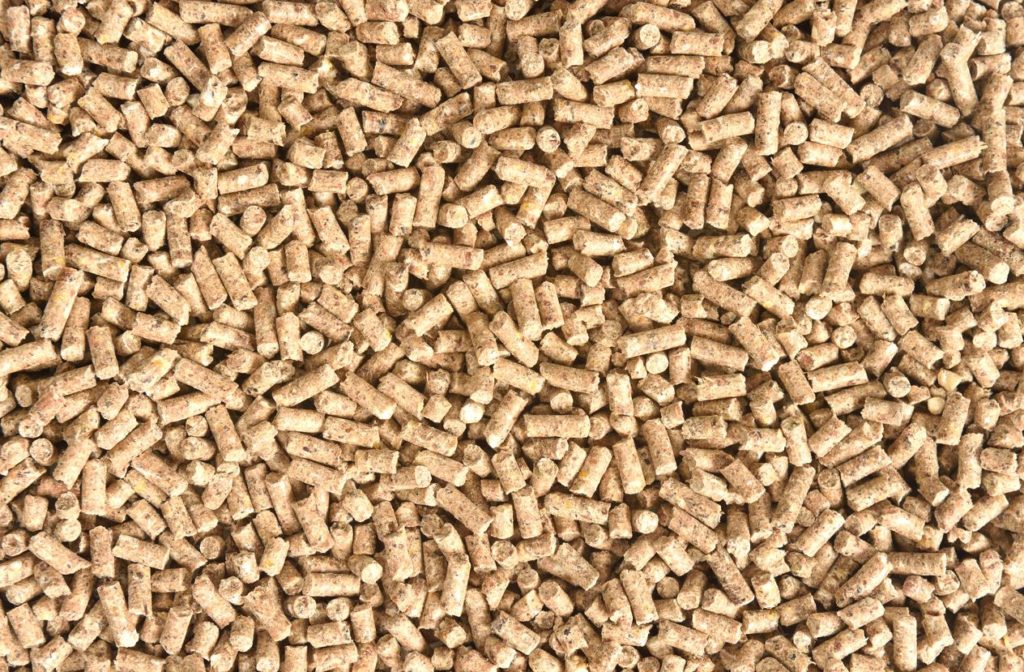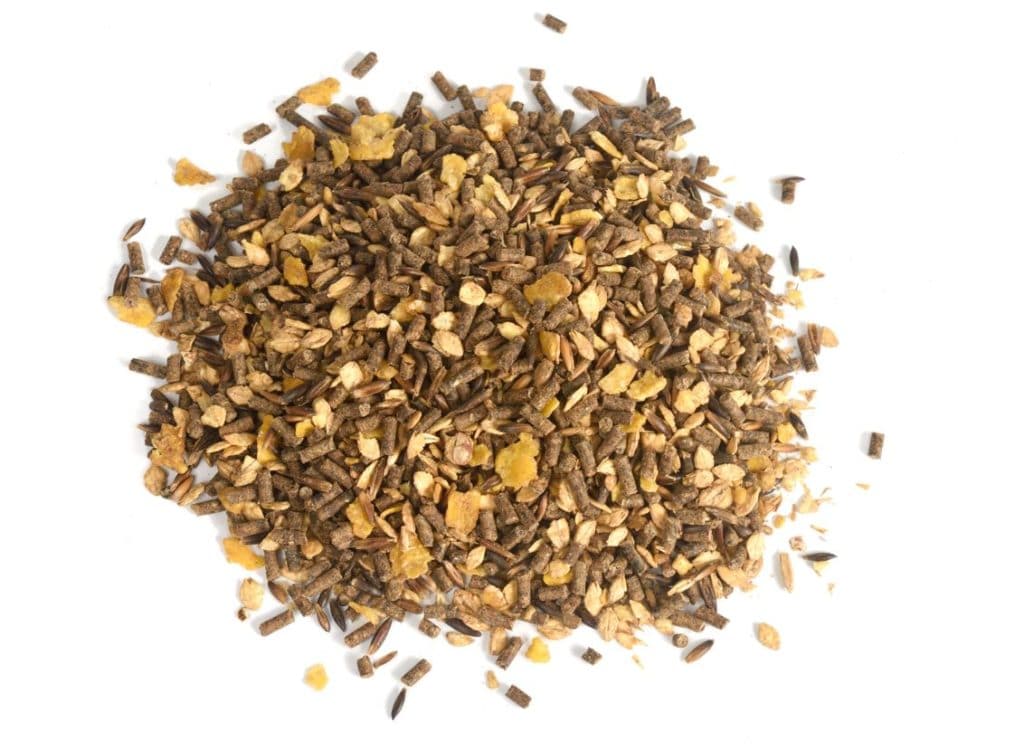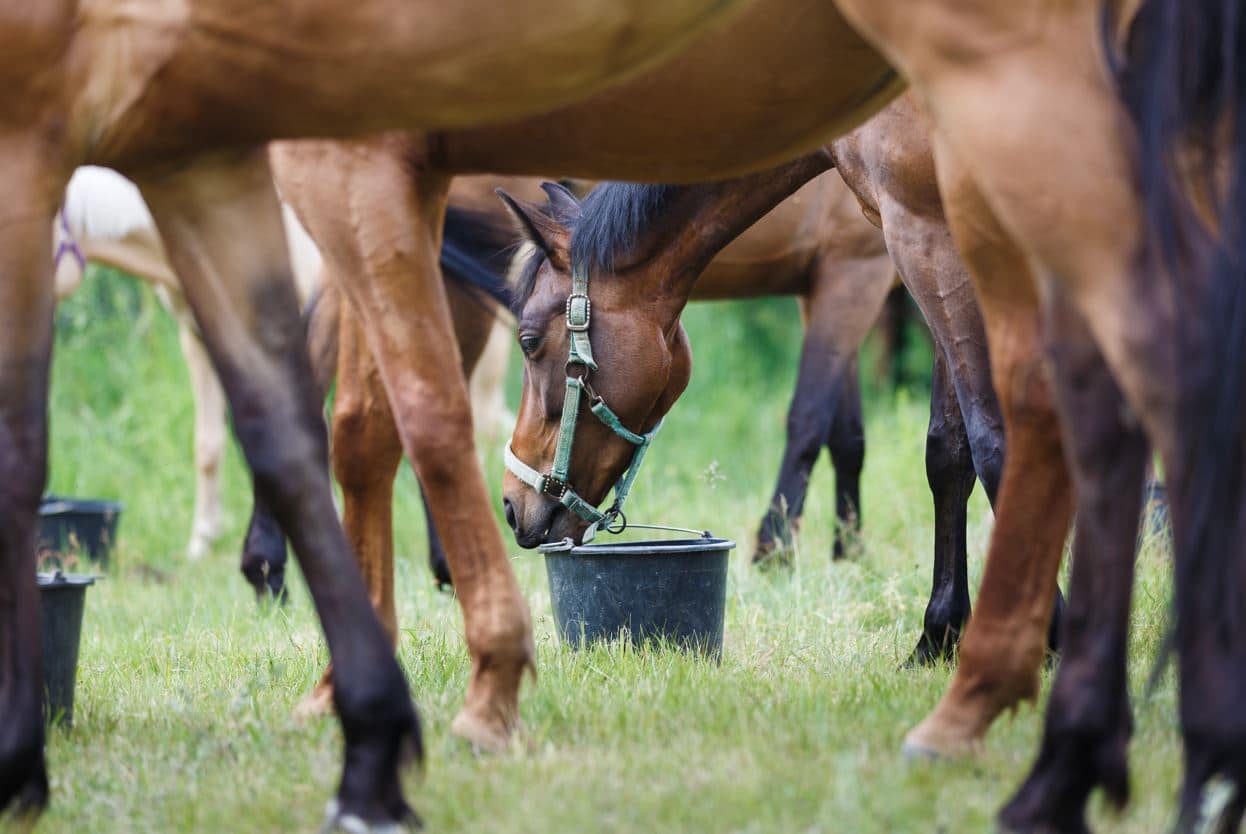Ensuring the well-being of your horse involves a nutrition strategy tailored to its physiology, body condition, and activity level. Beyond forages, the decision between flaked and pelleted feeds holds significant importance. But how do you make the right choice?
Advantages of Flaked Feeds:

Flaked feeds provide clear benefits, enhancing starch digestibility by about 20% compared to pellets, thanks to a specific heat treatment.
This reduction in starch digestibility lowers the risks of cramps and laminitis. Moreover, their high palatability encourages extended chewing, leading to increased salivation.
Key Differences Between Flakes and Pellets :
While both contain the same raw materials, the processing method sets them apart. Flakes undergo a distinct process involving steam and micronization of grains, rendering them more digestible. Additionally, they are often coated with a blend of oil and cane molasses, enhancing their appeal.
The act of ingesting flakes demands more time, fostering increased salivation—a positive aspect for the horse. On the other hand, pellets, which are often less palatable, integrate vegetable oil and molasses internally.

Considerations for Your Horse :
The choice between these two feed forms hinges on your horse’s preferences, gastric system, appetite, and living conditions. Horses with gastric issues may benefit from flakes, promoting salivation and improving starch digestion.
It’s crucial to recognize that equine nutrition, unlike human nutrition, thrives on stability and consistency. Horses thrive on routine, and constant changes can be disruptive.
Choosing the Right Feed Form for Your Horse:
The act of ingesting flakes takes more time, promoting increased salivation—a positive for the horse. Conversely, pellets, often less palatable, incorporate vegetable oil and molasses internally.
The decision between these two feed forms also relies on your horse’s preferences, gastric system, appetite, and living conditions. Horses with gastric issues may find flakes beneficial for promoting salivation and improving starch digestion.
It’s essential to note that equine nutrition, unlike human nutrition, thrives on stability and consistency. The dietary habits of horses are crucial, and constant changes can be disruptive.
In conclusion, the choice between flakes and pellets depends on several factors specific to your horse. Consider its gastric system, appetite, and living conditions to provide a balanced and tailored diet that meets its needs.



